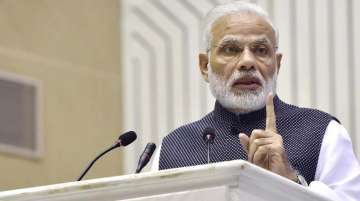In a move that may set off possibly the biggest reform undertaken in the education sector in recent times, the government is said to be mulling over an all-powerful regulator to eliminate instances of overlapping jurisdiction and ambiguity in norms prescribed by different regulators. The NITI Aayog and the Ministry of Human Resource Development are working on a new law that, if implemented, would scrap the University Grants Commission (UGC) and the All India Council for Technical Education (AICTE) and replace them with the regulator, tentatively christened Higher Education Empowerment Regulation Agency (HEERA).
A committee also comprising NITI Ayog CEO Amitabh Kant and Higher Education Secretary KK Sharma, among others, are already working on a detailed blueprint on the new law, the Economic Times reported citing government sources. The report further states that the decision to go ahead with this radical change was taken after a meeting on education chaired by Prime Minister Narendra Modi in early March, adding that the government may consider making amendments to the existing AICTE and UGC Acts as an interim reform measure since setting up a new regulator may take some time.
The idea of an all-powerful regulator that would subsume existing higher education bodies has been a long-standing demand by experts which was never implemented. Several government-appointed committees have recommended this measure, including the Yashpal Committee and the National Knowledge Commission of the UPA era and the Hari Gautam Committee set up by this government. However, the reform exercise was never undertaken.
Officials say that the new law in the works will be more streamlined and focused – one that will address some crucial issues facing education regulation in India. For instance, the existence of multiple regulatory authorities with overlapping jurisdictions has led to ambiguity, somewhere hampering the overall improvement in the quality of education in India. Regulators, including the UGC and AICTE, have often been at loggerheads with each other over the scope and ambit of their jurisdiction. Bickering over the control of MBA education in India was one such flashpoint a few years ago.
With the new norms, the government also wants to address the perception of regulatory overreach that has often been blamed for hampering on the autonomy of educational institutions. With top institutions like the IITs in the public sector and Indian School of Business in the private sector already out of the regulatory ambit, there have also been questions on measures taken by the government to address what has been termed as a declining standard of higher education in India.
Moreover, the norms prescribed by different bodies are often subjective but may apply to areas that may or may not be ideal for it.
It is with these issues in mind that the government has now set out to reform the regulatory structure of governing higher education in India. The ET report cites officials as saying that the new regulatory legislation is likely to be short and clean and will outline minimum standards focused on outcomes.
They also said separation of technical and nontechnical education is outmoded and out of sync with global practices, and that a single regulator will bring in greater synergy among institutions and in framing curricula.
Latest Education News
